If there was ever a success story to capture the resilience of our planet’s natural world, it’s Redonda Island.
In 2016, you would be lucky to guess that this desolate, volcanic island could belong to the lush, tropical islands of the Caribbean. Stripped of natural life from decades of extractive human interference – guano miners deforesting the fertile isle for artillery ammunition to be specific – Redonda was little more than barren cliff faces.
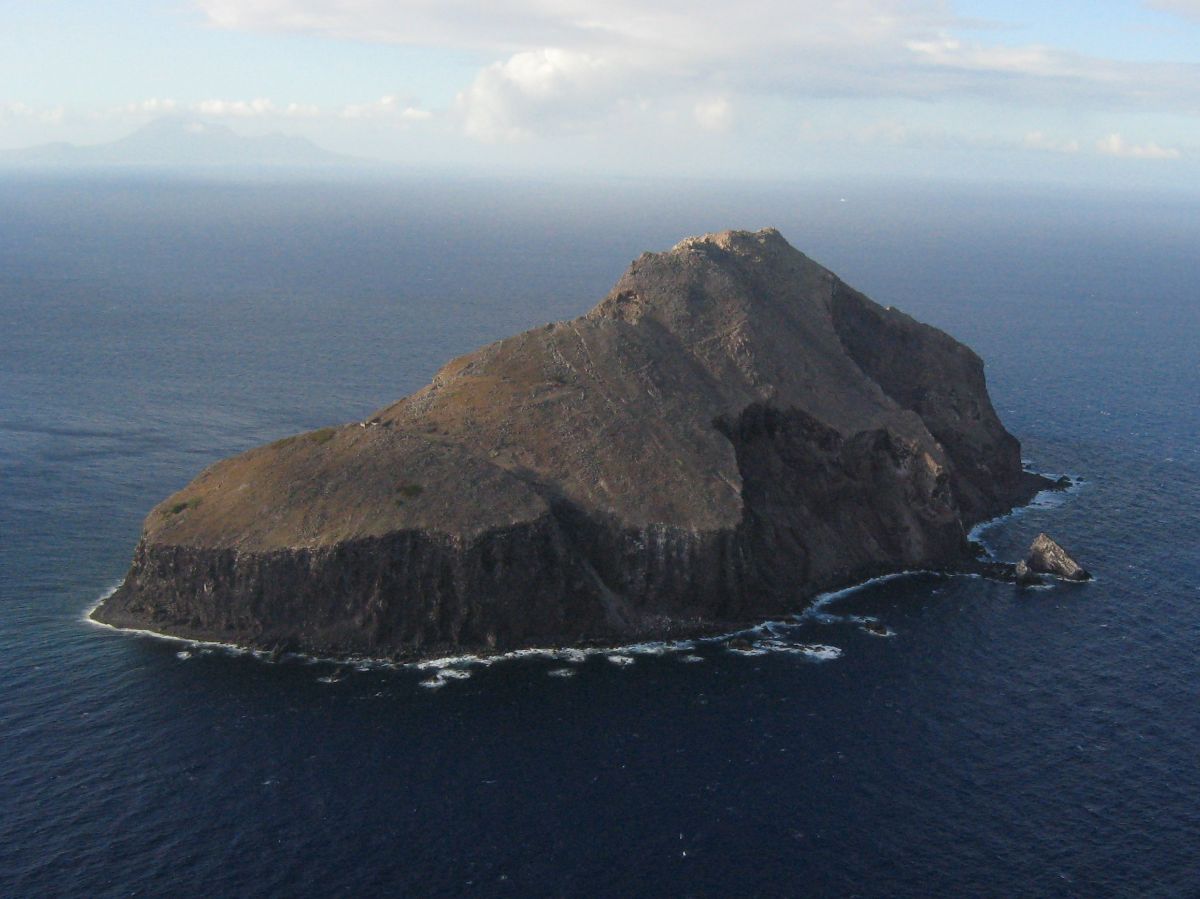 Redonda, January 2008 – Photo Credits: Jenny Daltry
Redonda, January 2008 – Photo Credits: Jenny Daltry
But, by 2022 — thanks to the untiring efforts of our friends at Environmental Awareness Group (EAG) with key partners Re:wild, Fauna & Flora International (FFI), The Commonwealth and the Government of Antigua & Barbuda – life has, once again, returned to Redonda. Rare lizards scamper cliff faces, sea birds sore its escarpments, and the rocky isle is, once again, blanketed with native grasses, shrubs, and trees.
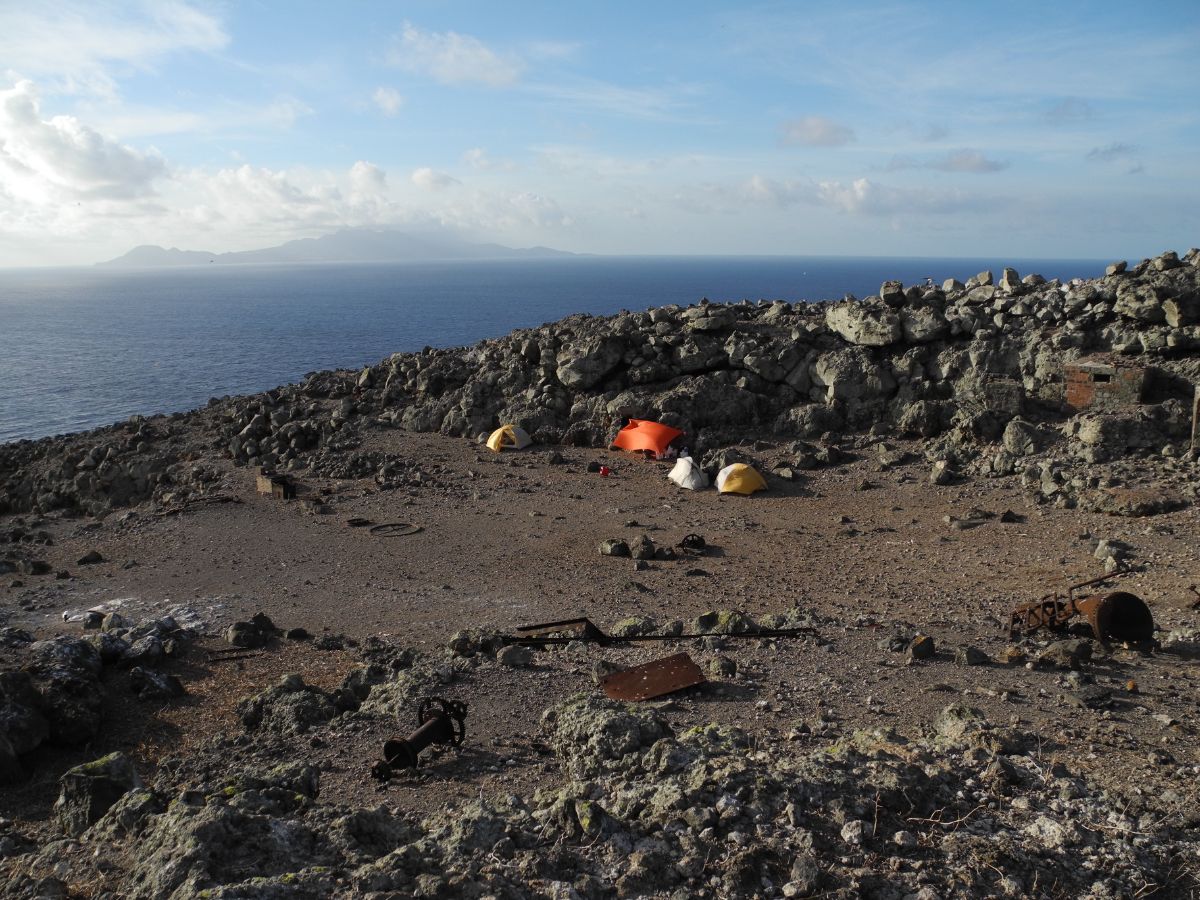 Redonda April 2012 – Photo Credits: Jenny Daltry
Redonda April 2012 – Photo Credits: Jenny Daltry
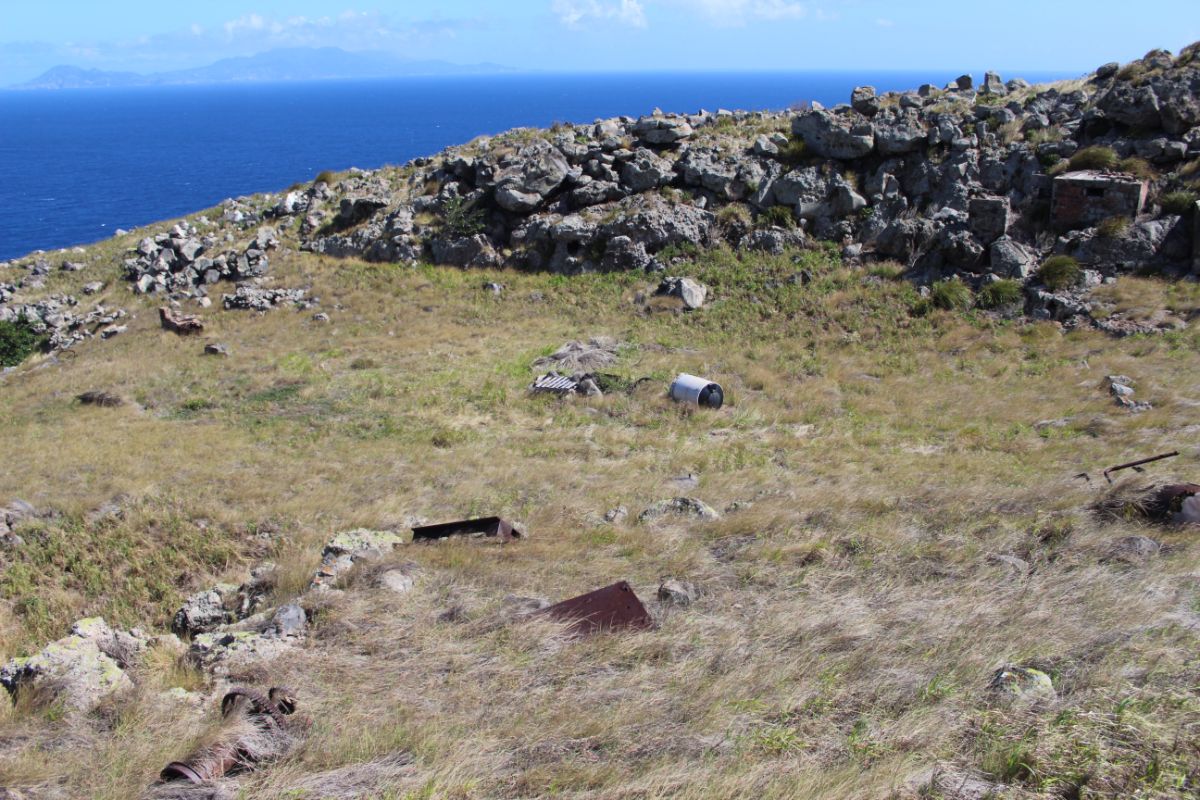 Redonda February 2022 – Photo Credits: Jermaine Jarvis
Redonda February 2022 – Photo Credits: Jermaine Jarvis
Together, Redonda has been given space and time to heal. Its success story portrays the resilience of our planet’s ecosystems, but also the importance of collaboration when it comes to protecting them.
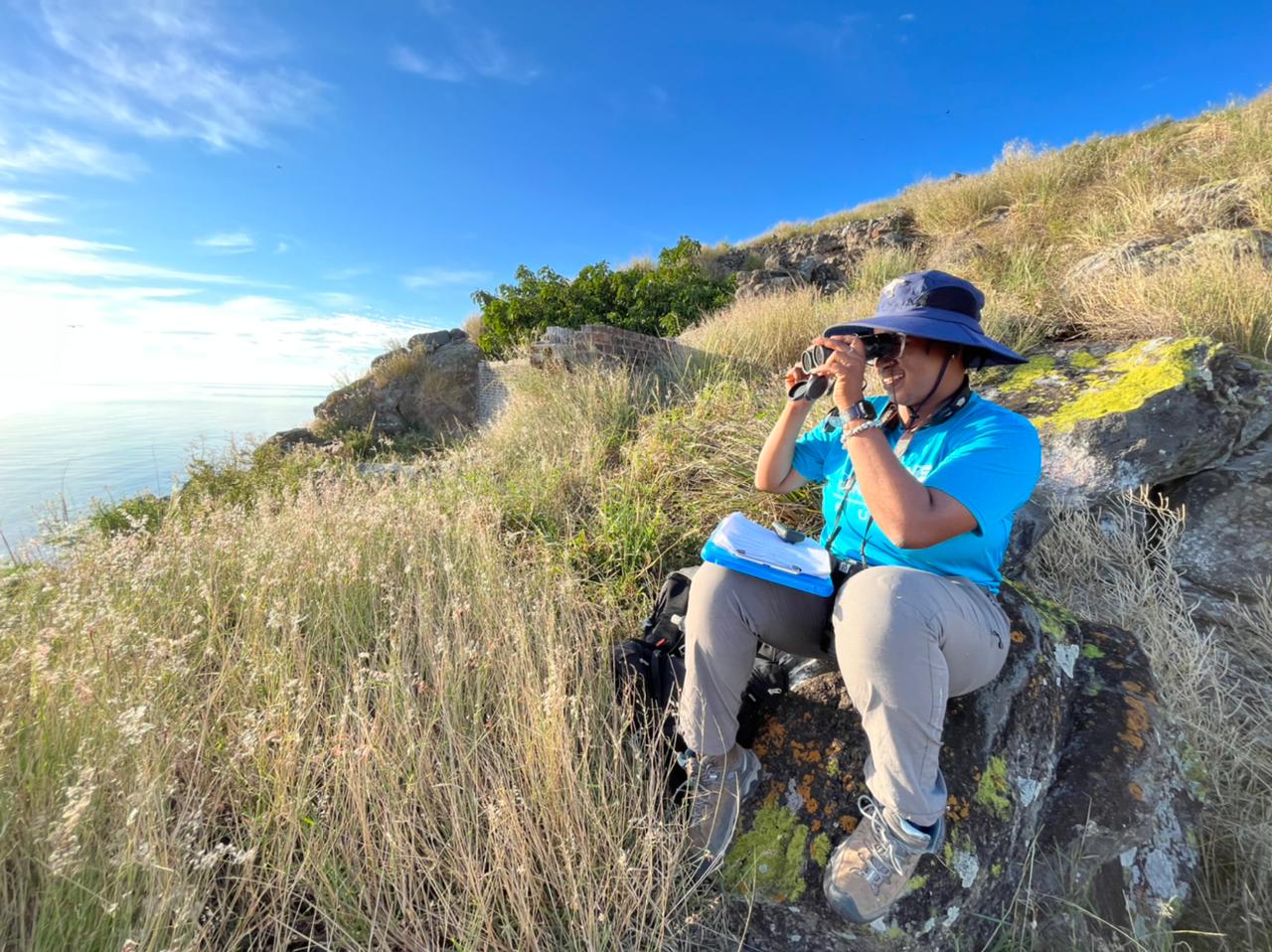 Shanna Challenger conducting nesting seabirds on Redonda, 2021 – Photo Credits: Karim Hechm
Shanna Challenger conducting nesting seabirds on Redonda, 2021 – Photo Credits: Karim Hechm
Last week, our Co-Founder, Emily Penn, was invited to host a panel discussion with EAG Executive Director, Arica Hill, and Redonda Ecosystem reserve Co-ordinator, Johnella Bradshaw. The panel followed a private screening of “Redonda: The Road to Recovery” – a captivating film that tells the story of Redonda’s remarkable rewilding and the collaboration that was so critical to its success– hosted by Her Excellency Karen-Mae Hill, High Commissioner for Antigua & Barbuda – in London.
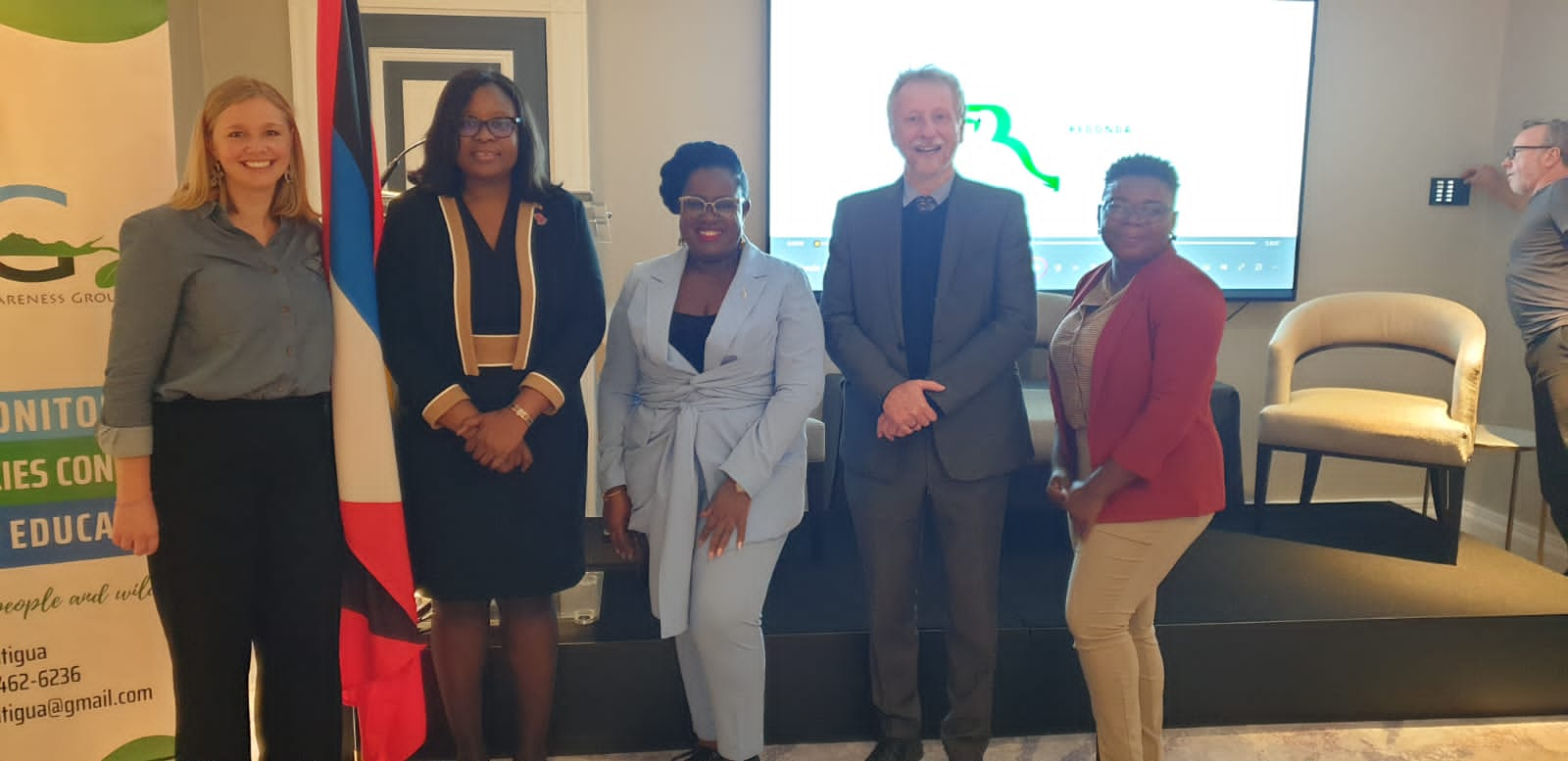 The documentary takes the viewers on a journey explaining Redonda’s history and how the island became overrun by invasive alien species, why and how they needed to be removed, and the impact of that transformation. The documentary spotlights the need for locally led conservation action, and the collaboration needed from numerous stakeholders, to maintain the efforts of local organisations doing this work. For a sneak peak, check out the trailer below.
The documentary takes the viewers on a journey explaining Redonda’s history and how the island became overrun by invasive alien species, why and how they needed to be removed, and the impact of that transformation. The documentary spotlights the need for locally led conservation action, and the collaboration needed from numerous stakeholders, to maintain the efforts of local organisations doing this work. For a sneak peak, check out the trailer below.
Redonda: The Road to Recovery (Trailer)
The Environmental Awareness Group is Antigua and Barbuda’s oldest non-governmental environmental organisation and has been at the forefront of conservation work for over 30 years. From restoring offshore islands and saving species from extinction, to education, community engagement, and influencing environmental policy, the EAG continues to work collaboratively to enact environmental change in Antigua and Barbuda.
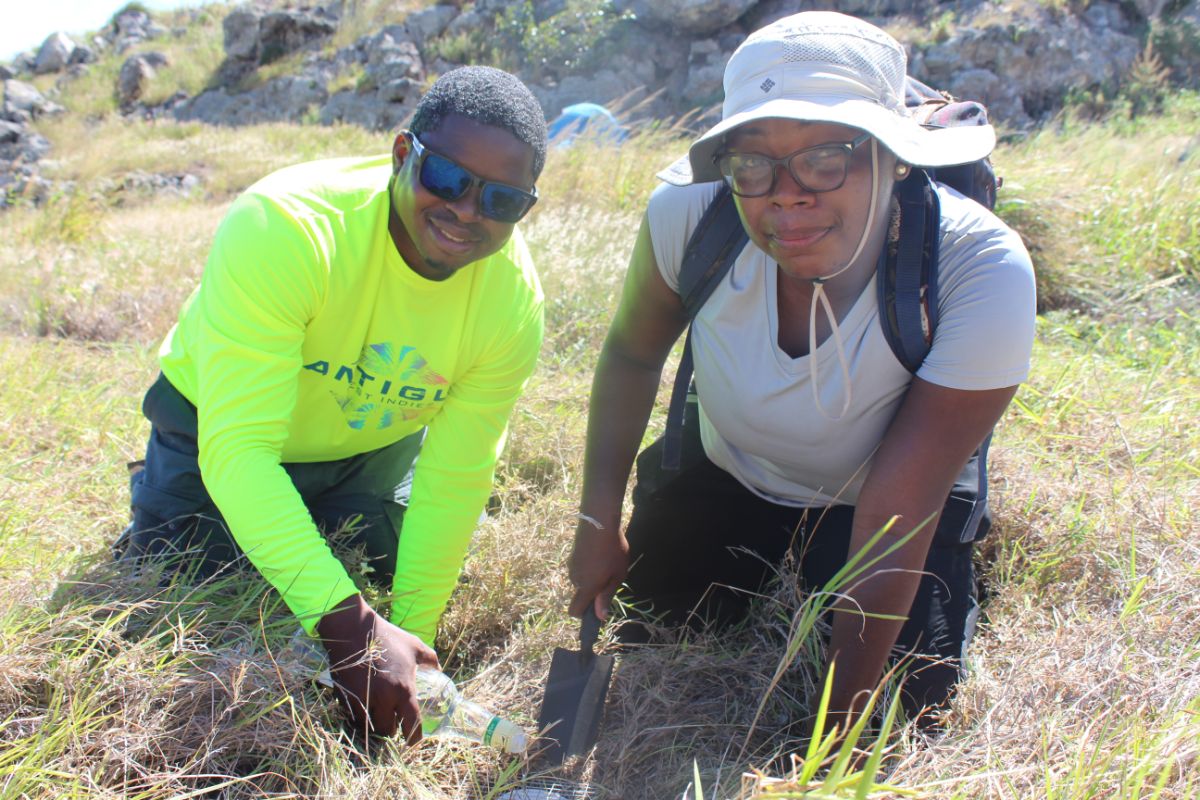 EAG Team on Redonda, November 2021 – Photo Credits: Shanna Challenger
EAG Team on Redonda, November 2021 – Photo Credits: Shanna Challenger
The Caribbean – and the EAG – have always been of special significance for us here at eXXpedition.
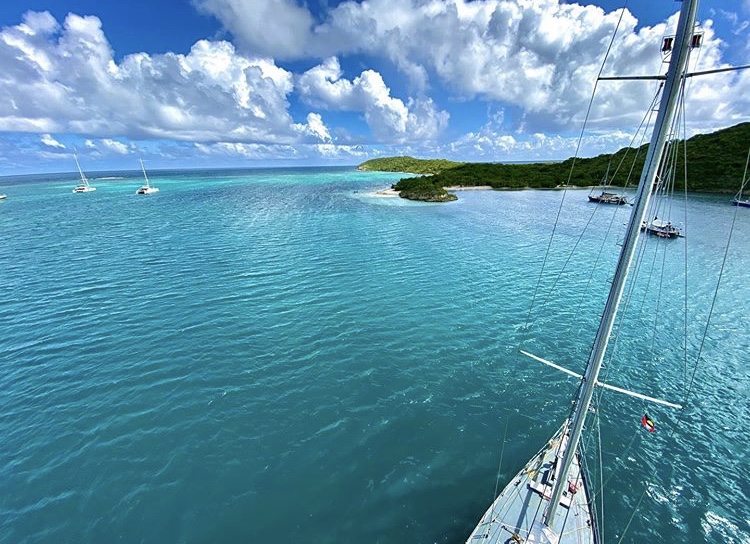 Photo Credits: Anna Strang
Photo Credits: Anna Strang
Our voyages in both 2016 and 2017 explored and researched the health of our ocean around some of the Caribbean’s beautiful islands. Returning two years later, in 2019, our Round the World expedition, saw us explore islands around Antigua, Bonaire and Aruba, respectively.
Leg 3 of eXXpedition Round the World took us around Antigua’s outer islands – via Green Island. The voyage saw our multidisciplinary crew conduct beach clean ups, carry out surveys, and meet with Governor of Antigua, his Excellency Sir Rodney Williams, to discuss the challenges Antigua faced, and the steps they were taking to reduce their plastic footprint.
 Photo Credits: Kristen Weiss
Photo Credits: Kristen Weiss
The voyage culminated in an outreach talk at Cobbs Cross Primary School, organised by the Environmental Awareness Group.
 Photo Credits: Kristen Weiss
Photo Credits: Kristen Weiss
Moving towards Aruba, our Leg 4 crew took on a similar, albeit varied, adventure – sailing from Falmouth to Bonaire and then onto Aruba – where they conducted more surveys, clean-ups and outreach events with local communities.
 Photo Credits: Jamie Colman
Photo Credits: Jamie Colman
Up until eXXpedition Round the World, little work had been done to quantify plastics within the Caribbean marine environment or examine their potential sources. Our adventures in the Caribbean sought to address this.
Partnering with the University of Plymouth in conjunction with the University of Georgia, Plymouth Marine Laboratory and the Technological University of Panama, we were able to conduct the first holistic assessment of marine and land-based plastic pollution in the Southern Caribbean.
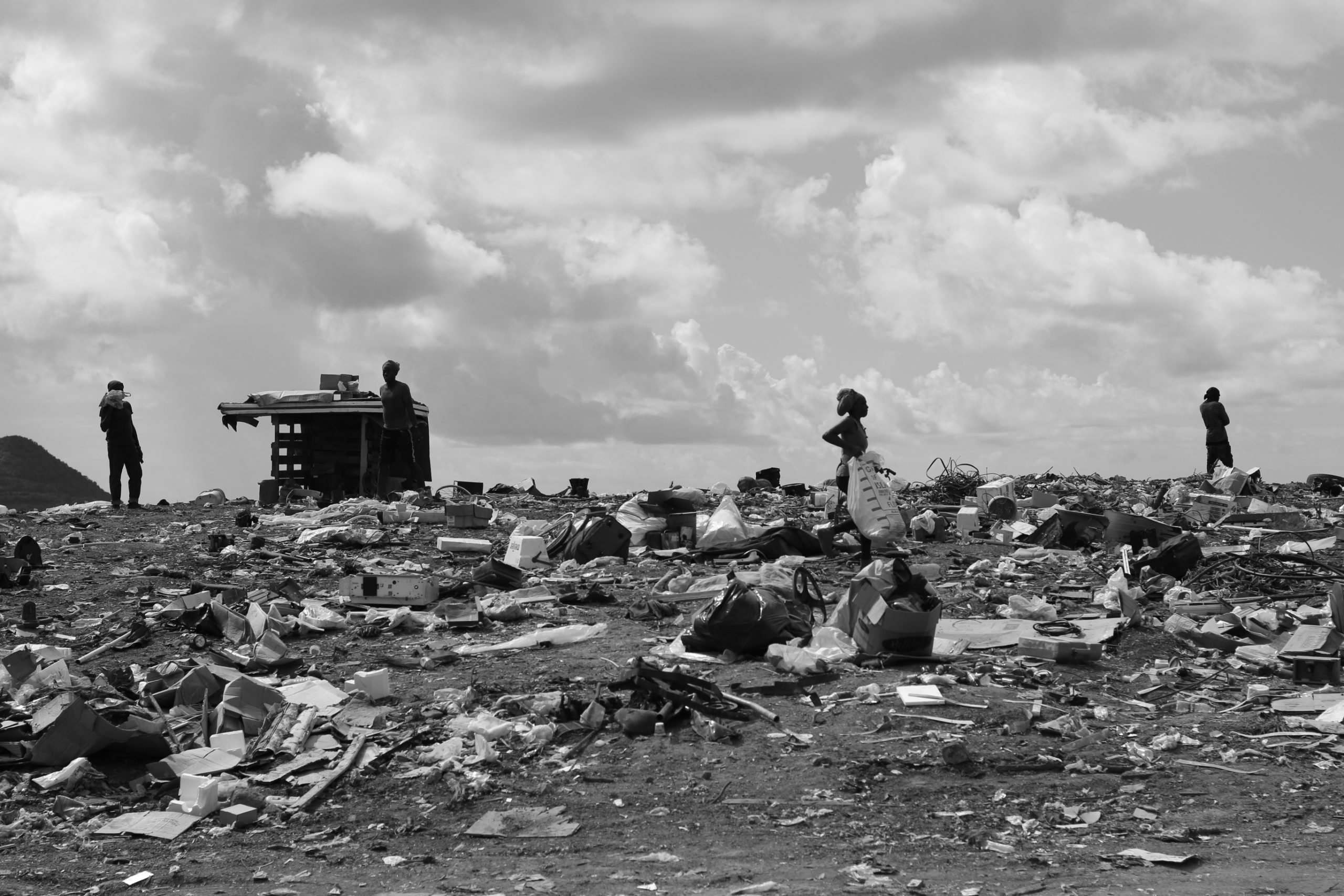 Photo Credits: Jamie Colman
Photo Credits: Jamie Colman
The combination of our sea sampling, sea-floor sampling, and land-based assessments, provided the basis for our Caribbean Research Paper – Source, Sea and Sink – a holistic approach to understanding plastic pollution in the Southern Caribbean – which was published in Science of the Total Environment Journey in August, 2021.
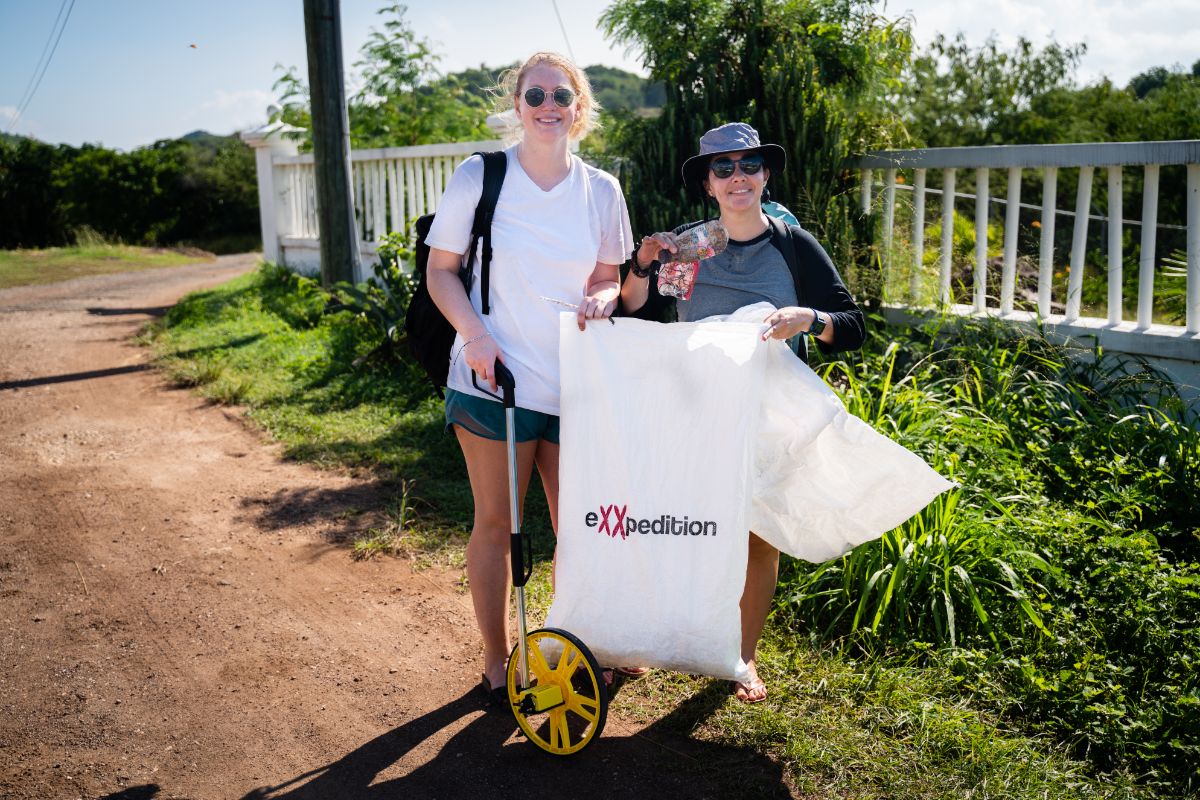 Photo Credits: Jamie Colman
Photo Credits: Jamie Colman
The aim of the research was to better understand the environmental and human factors influencing distributions of plastic pollution.
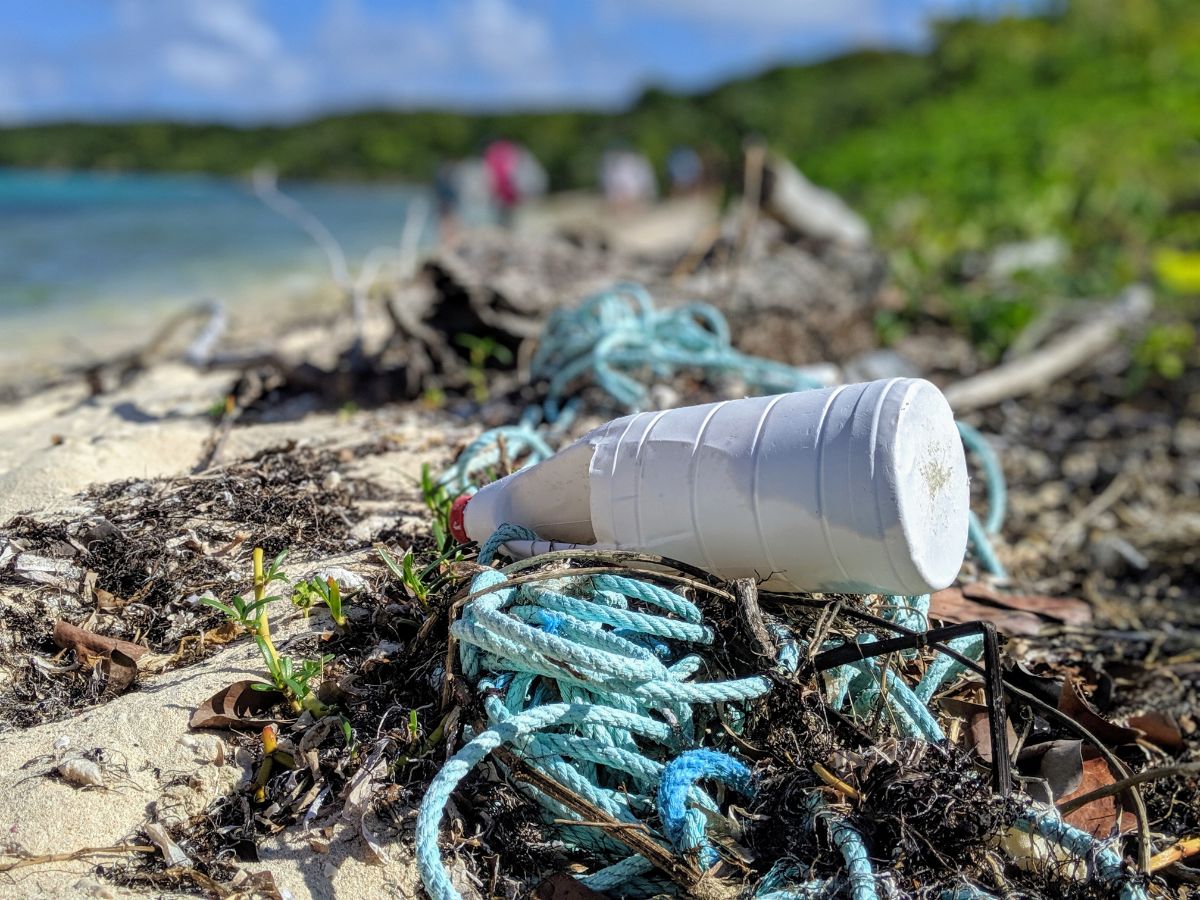 Photo Credits: Kristen Weiss
Photo Credits: Kristen Weiss
Interestingly, very few plastic bags or expanded polystyrene foams were found as litter in countries (Antigua, Aruba) which had a ban on these items. However polystyrene foam was identified within surface water samples, suggesting that these may have originated from elsewhere and been carried by ocean currents.
Clearly, policy works – as seen with the link between plastic bag bans and the lack of plastic bags documented in land-based litter surveys. Like our Caribbean research findings, government policy will be critical to Redonda moving forwards. With the support of the Government of Antigua & Barbuda, Redonda will soon receive designation as a Protected Area under the Environmental Protection and Management Act 2019; and will soon be called the Redonda Ecosystem Reserve.
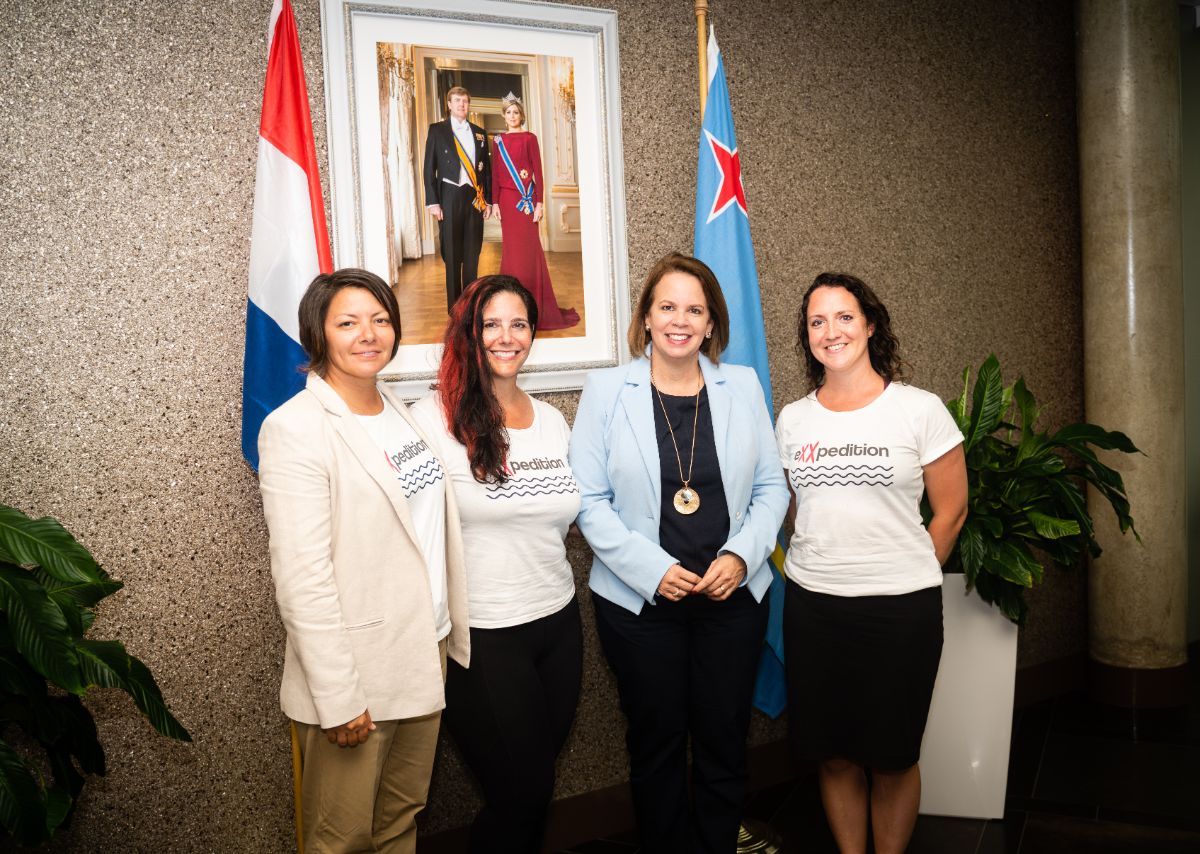 Photo Credits: Jamie Colman
Photo Credits: Jamie Colman
Our experience has shown that for long-lasting and wide-ranging results, we need more cross-border policy action. Island nations are leading the charge, but they cannot go at it alone. What has always been clear to us, here at eXXpedition, is the importance, and power, of multicultural, multidisciplinary collaboration.
 Photo Credits: Kristen Weiss
Photo Credits: Kristen Weiss
The holistic nature of eXXpedition’s research and consequent results, highlights the importance of integrated, interdisciplinary studies when trying to understand and inform on the most effective solutions to multifaceted issues – like plastic pollution – affecting our planet and ocean.
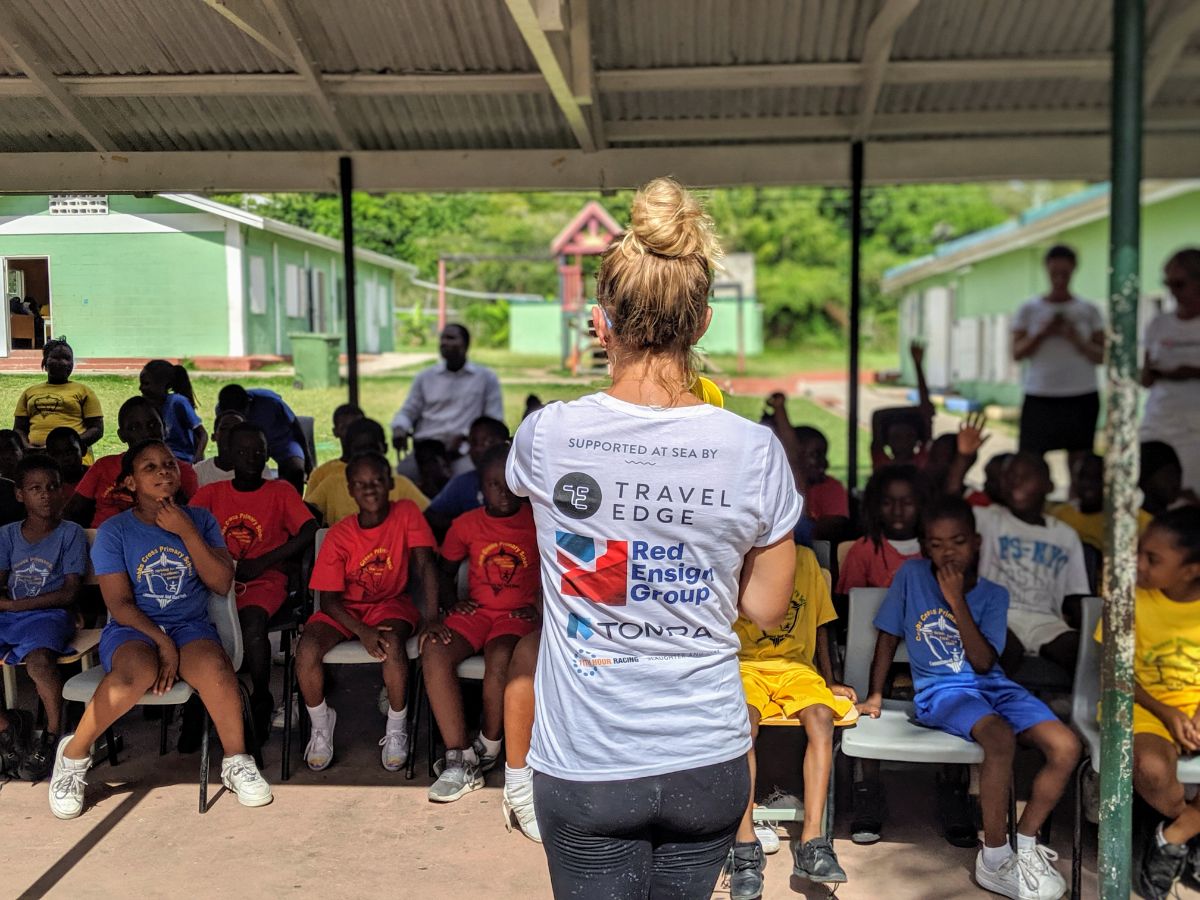 Photo Credits – Kristen Weiss
Photo Credits – Kristen Weiss
The Rewilding Redonda project could not be a greater example of this. Through collaboration of different stakeholders – each with their own unique superpowers – Redonda has been restored.
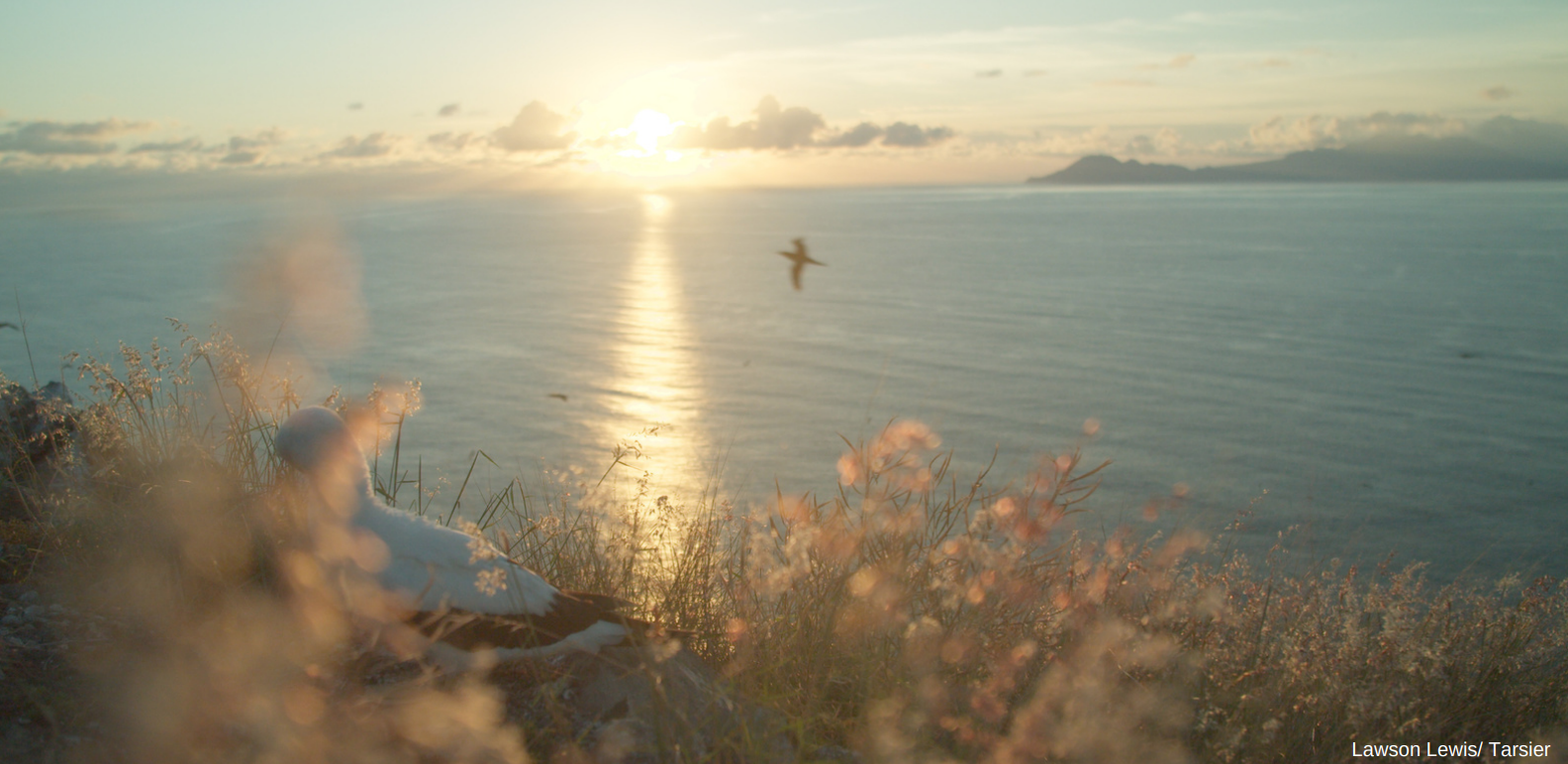 Photo Credits: Lawson Lewis/Tarsier, EAG
Photo Credits: Lawson Lewis/Tarsier, EAG
It acts as a beacon of hope for what nature can do when people work together.
To keep track of Redonda’s progress, and learn more about the EAG’s fantastic conservation efforts follow @eagantigua on Instagram, or Twitter.
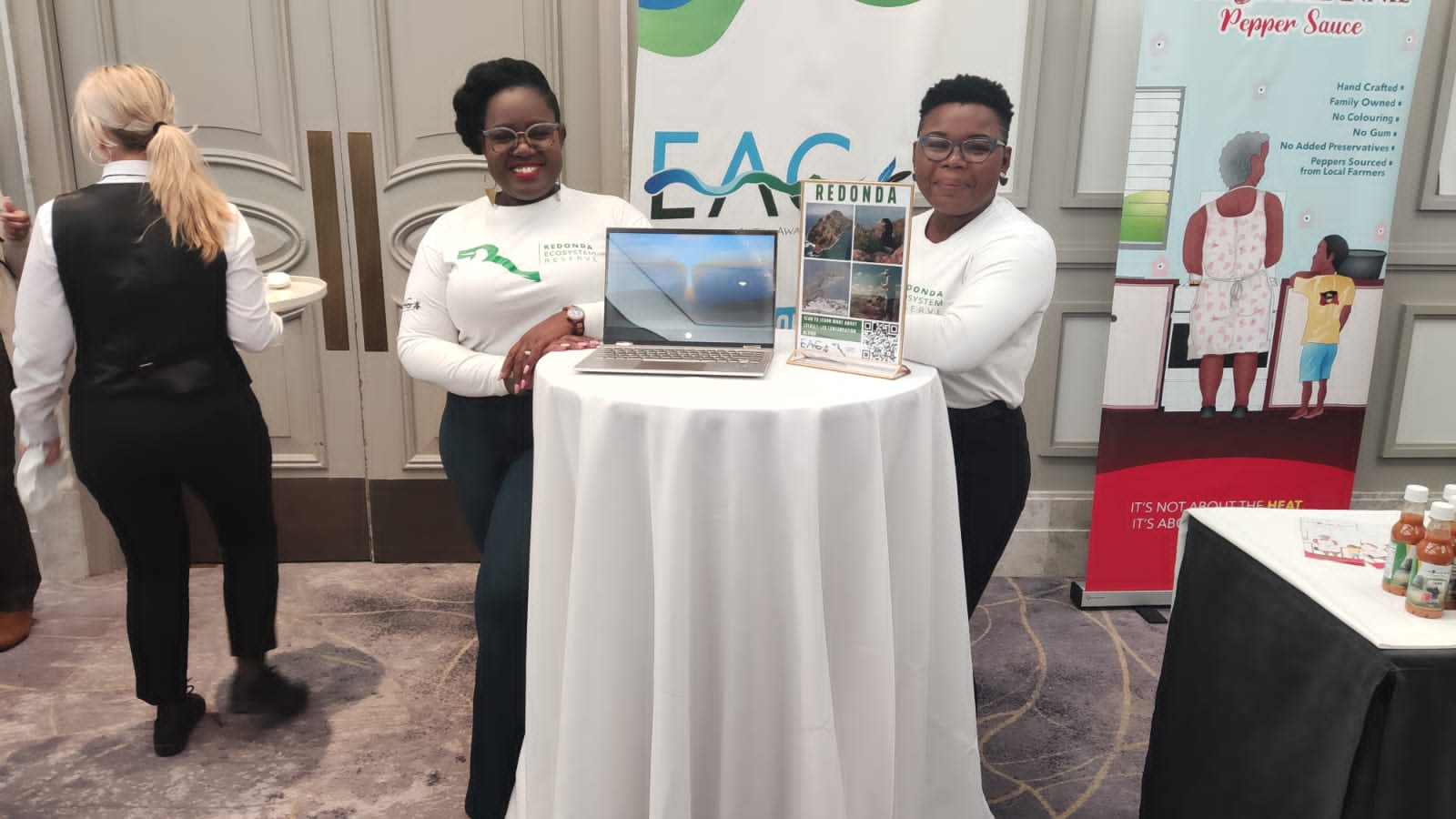 Johnella & Arika at the Business Trade Show, London – Photo Credits: EAG
Johnella & Arika at the Business Trade Show, London – Photo Credits: EAG
eXXPedition Photo Credits: Thanks to Jamie Colman, Anna Strang & Kristen Weiss.
 Photo Credits: Kristen Weiss
Photo Credits: Kristen Weiss
 Photo Credits: Jamie Colman
Photo Credits: Jamie Colman Photo Credits: Kristen Weiss
Photo Credits: Kristen Weiss